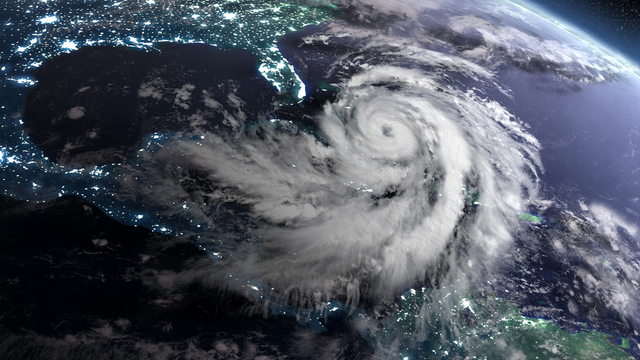Is it summer already? I wish that meant it’s only mango season in Florida. Unfortunately, it also signals the start of another hurricane season. Here are tips on how to prepare your business.
Action Steps
Communication. Update the address, home telephone number, cell phone number, and personal e-mail address for each employee. You may need to use cell phones, texting, and personal e-mail to communicate with them after a storm if the office equipment isn’t functioning. Consider having an analog telephone on hand and landline available because digital and voice over Internet protocol (VoIP) telephone systems won’t work if the power is out.
Crisis response team. Designate an emergency response team, and provide a list of employees for whom each team member is responsible for contacting after the storm has passed.
Website updates. Provide information on the company’s voicemail system and website so employees can check the status of the business operations and receive updates.
Office supplies. For employees working from home, make sure they have needed office supplies in the event the business is unable to restock them after the storm. You may wish to provide surge protectors to employees using company-issued equipment to help protect laptops, printers, and so on.
Essential personnel. Must your business remain open even during natural disasters, such as a hotel or hospital? If so, you must identify essential personnel who are required to remain at work during the storm. You also may want to ask for volunteers to work during the hurricane. Consider incentives to encourage employees to volunteer to work, such as increased pay or earned days off.
Along those lines, consider whether your business can accommodate the household members and/or pets of employees who are required to work or who volunteer to stay on-site during the storm. You may wish to assess whether inviting household members to “ride out the storm” at the workplace will ease employees’ minds, allowing them to focus on their duties, or serve as a distraction. Please also review:
- Whether “inviting” additional people into the workplace is consistent with your current COVID-19 procedures; and
- Whether the increased number of people could pose a risk to other employees, guests, or patients.
Compensation. Consider in advance whether you will compensate employees if a disaster prevents the workplace from operating. Under the Fair Labor Standards Act (FLSA), you need to pay nonexempt employees only for the hours they actually work.
If exempt employees work only part of a day, however, the FLSA prohibits you from docking them for a partial-day absence. If they are precluded from working because the business isn’t operational, you may still have to compensate them and may not be permitted to require them to use paid leave for that day off. If exempt employees are unable to report to work for a personal reason, including inability to travel to the workplace, you may be able to dock them for that day’s pay or require them to substitute paid leave for the day’s absence.
Paycheck distribution. Consider how you will distribute paychecks if the business isn’t functioning. You may wish to consider asking employees to enroll in a direct deposit program so that wages can be electronically transferred into their accounts, assuming of course the financial institutions involved in the transaction are operating. Employers in Florida can’t require employees to sign up for direct deposit.
Hours worked. Require employees working from home in the storm’s aftermath to track and log their hours worked. Nonexempt employees who are working from home must be paid for all hours worked. You’ll need some mechanism to track and limit the hours spent working remotely. If the company doesn’t want nonexempt employees working from home, you should clearly communicate the policy before the storm arrives.
Leave time donations. After several major hurricanes, some employees wished to donate accrued leave time to their coworkers who were more dramatically affected by the storm. Consider whether your company will allow such donations of accrued time and what tax implications, if any, there may be.
Stay safe and dry!
Glenn Rissman is a shareholder in the law firm of Stearns Weaver Miller in Fort Lauderdale, Florida. You can reach him at grissman@stearnsweaver.com. Also contributing to the report was Lynn Derenthal, a paralegal in the same office.
The post 9 Ways for Employers to Prepare for the Next Hurricane appeared first on HR Daily Advisor.
